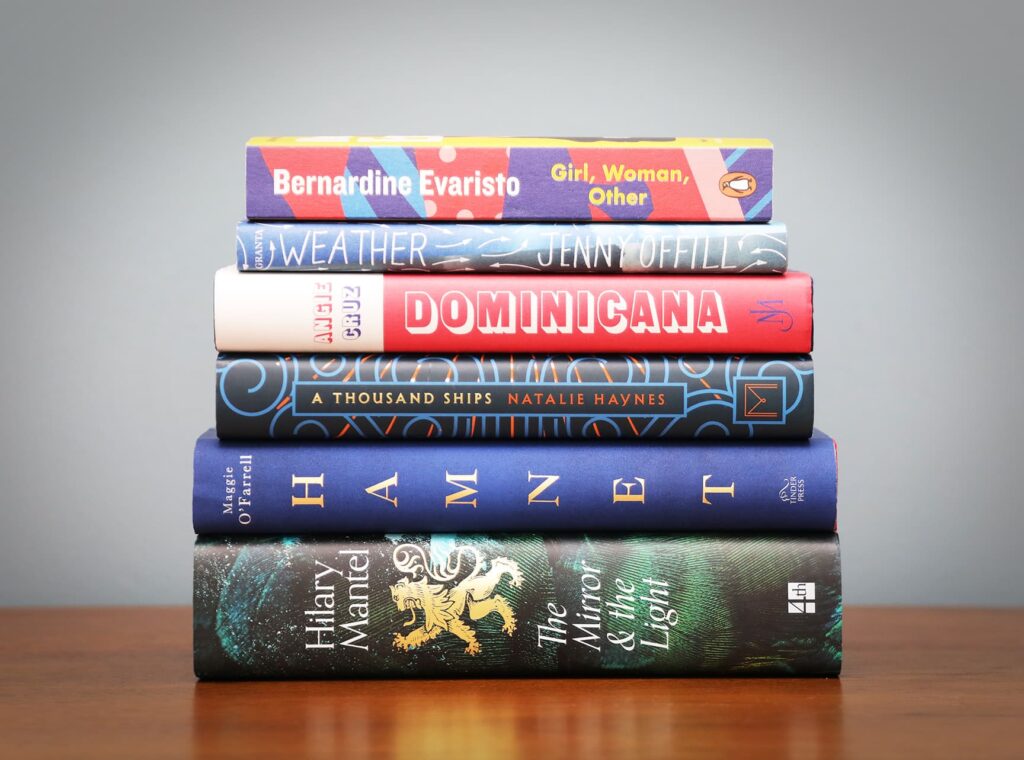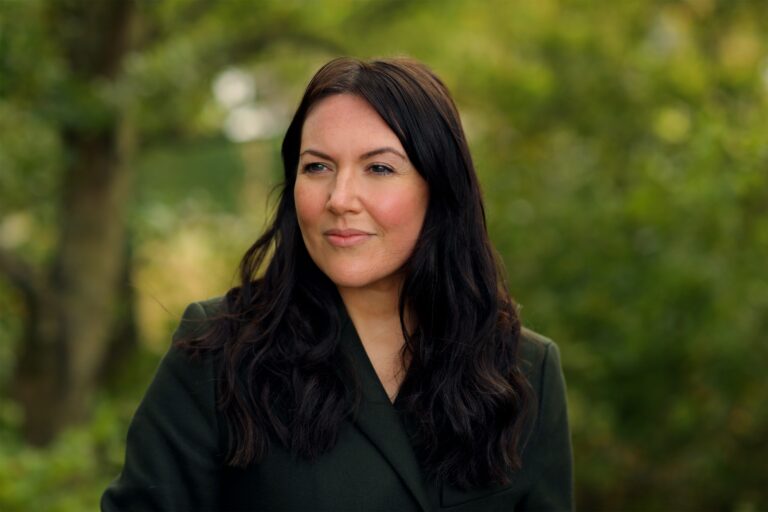If you’ve loved any of the books of the 2020 Women’s Prize for Fiction shortlist, and are inspired to start writing yourself – perhaps even considering entering Discoveries– why not use the writing activities below to start you off? There are two prompts for each of the six titles.
A Thousand Ships by Natalie Haynes
Natalie Haynes retells the story of the Trojan War from an all-female perspective in A Thousand Ships. Goddess origin stories are fascinating: research a goddess from a culture you’re unfamiliar with, e.g. Hinduism, Sumeria, Norse legends, Celtic mythology, Slavic cultures, Polynesian culture, Aztec beliefs, etc. Find out as much as you can: what or who was she a protector of, what animals are associated with her, does she have a special festival or day in the year? Are any other deities related to her and how, i.e. marriage, siblings? What special powers does she have, does she have a day of the week or a special hour of the day dedicated to her? Does she have special prayers and rites associated with her? If she had a cult, what was it called? Write up your findings, or perhaps write a devotional hymn, poem or prayer to your goddess.
Or, you might like to take a pantheon of gods and construct alternative stories for them, or put them into modern day life. If Artemis was a human now, what would she be like? What sort of person would Hera resemble? What would they want in life, and how would they go about getting it? Would they have godly powers, or not? You can have fun with it and go with a humorous take or be serious – perhaps imagine a contemporary character talking or interacting with a goddess. What might the goddess tell him/her to do? How would this be viewed – as a spiritual practice, or as something else? How does the relationship develop? How does the goddess feel about the modern world?
Dominicana is set in Manhattan, in the 1960s, against the backdrop of the civil rights movement and political frenzy in the States. Martin Luther King and Malcolm X are well known historical figures from the civil rights movement in America, but the women of the movement don’t tend to be as well known. Research one female contemporary of Malcolm X who worked alongside him, or who was involved in civil rights at the same time as him. You might like to write an article about her, or an interview, as if for a magazine feature. Look at a women’s magazine for inspiration on style and tone.
Dominicana paints a vivid picture of a small section of 1960s New York, from Ana’s Jewish neighbours to the clothes shop she delights in visiting and the food available in the shops. Can you write a poem that evokes a vivid sense of place from the point of view of someone contained in a small space? Perhaps like Ana leaning out of the window, her movement mostly restricted to the apartment, or in another way that expresses someone taking in a vivid but restricted environment? How will you achieve the vividness of description? Remember to use all the senses in your writing as well as inventive but relevant simile and metaphor. Try to make the poem come alive with sensual detail, and perhaps somehow infuse it with a sense of yearning.
Girl, Woman, Other by Bernardine Evaristo
Inspired by the narrative style of Girl, Woman, Other, create a written piece of a page or two which conveys a character’s stream of consciousness without using punctuation other than line breaks. How does this affect your ability to describe a character or get a sense of them on the page? Is it actually easier to dispense with linguistic conventions such as speech marks, commas, other punctuation? Or is it difficult to get your meaning across?
Girl, Woman, Other excels at representing different women’s perspectives. How hard is it to write authentically from a different point of view other than your own? With a friend, try and write as if you are each other. Write about a day in each other’s life, in as close as possible to ‘their’ voice as possible. How will you get their voice right? Do they have favourite phrases, ways of speaking, volume, pacing? Do they make particular expressions or use emphasis in a particular way? And what about their lived day to day life? What do they do? In sitting down together to do the task you may find that you end up asking each other lots of questions about things you don’t know!
The main character Agnes does not receive a formal education, yet is immensely knowledgeable about plants and their uses, as well as being a wise healer and tamer of wild animals. Research three different plants and their medicinal or therapeutic qualities in as much detail as you can – you could choose some mentioned in Hamnet, such as comfrey, lavender, rosemary, angelica or valerian. Look at an old herbal guide and see how the plants are classified; you might even draw the plants and describe their appearance, where they grow, etc. Make notes about their traditional uses; perhaps research what they were used for in Tudor times and what they are used for now, if at all. Are any of these plants still used for similar purposes? Have they been synthesised into modern medicine?
Read Shakespeare’s play Hamlet. Reading it having read Hamnet, what are your thoughts about Prince Hamlet and the themes of death, grief and fate? Can you find passages that relate to Maggie O’Farrell’s reimagining of the inspiration for the play?
The Mirror and the Light by Hilary Mantel
The Mirror and The Light fills in many of what we might imagine are ‘unseen’ scenes in the years of Henry VIII’s reign: the breakfast after Anne Boleyn’s execution, the meetings between Henry and Cromwell, Hans Holbein painting the pregnant Jane Seymour and what was said as she sat for him. Write what you imagine the ‘unseen scene’ might look like at a key point for a king or queen in history, Tudor or otherwise. Is it the hour before they die, a moment just before a battle, the day after a historic ruling, their wedding night? You can choose to research facts and imagine from there, or write completely freely.
Write a series of diary entries as Mary Tudor covering the period just before she returns to court. How does she feel about her father, and how does that change once she realises she was wrong about it being Anne Boleyn that turned him against her? Include mention of her various illnesses and ailments, and try to describe what her daily life might look like. What type of character is Mary? How can you show her determined nature? Try to think of a way you can show her character with her actions rather than just describing it.
Lizzie is hired to answer the mail her old mentor Sylvia Lillier, now a successful podcaster, receives: from left-wingers worried about climate change and right wingers worried about the decline of western civilization. Write alternative replies to some (or all) of the questions Lizzie receives in Weather. Will you be factual, flippant, insulting, sarcastic or sympathetic? Do you feel compelled to answer in a certain way, i.e. does your own political or religious position influence your answer? What kind of answer do you think the people writing the questions want and/or need? Will you keep your answers long or short? You could even write some questions yourself and then answer them – or ask a friend to write to you with their concerns about climate change and answer them, and vice versa.
Inspired by the title of Jenny Offill’s book, write about weather in relation to emotions. Write an extended piece, a scene or two perhaps, which uses a weather-based extended metaphor, i.e. a storm to describe an argument, a realisation or a person experiencing emotion of some kind after a revelation. As well as storms, you could use rain, wind, hail or snow. Ideally you need a weather type that contains some kind of variation so you can describe something intensifying or lightening according to the mood – so an unbroken sunny day might not work as well as a sunny day that becomes cloudy, for instance. See if you can convey mood and keep the metaphor going through the piece.
For more details on the Women’s Prize’s Discoveries, our new writers’ development programme, click here.








